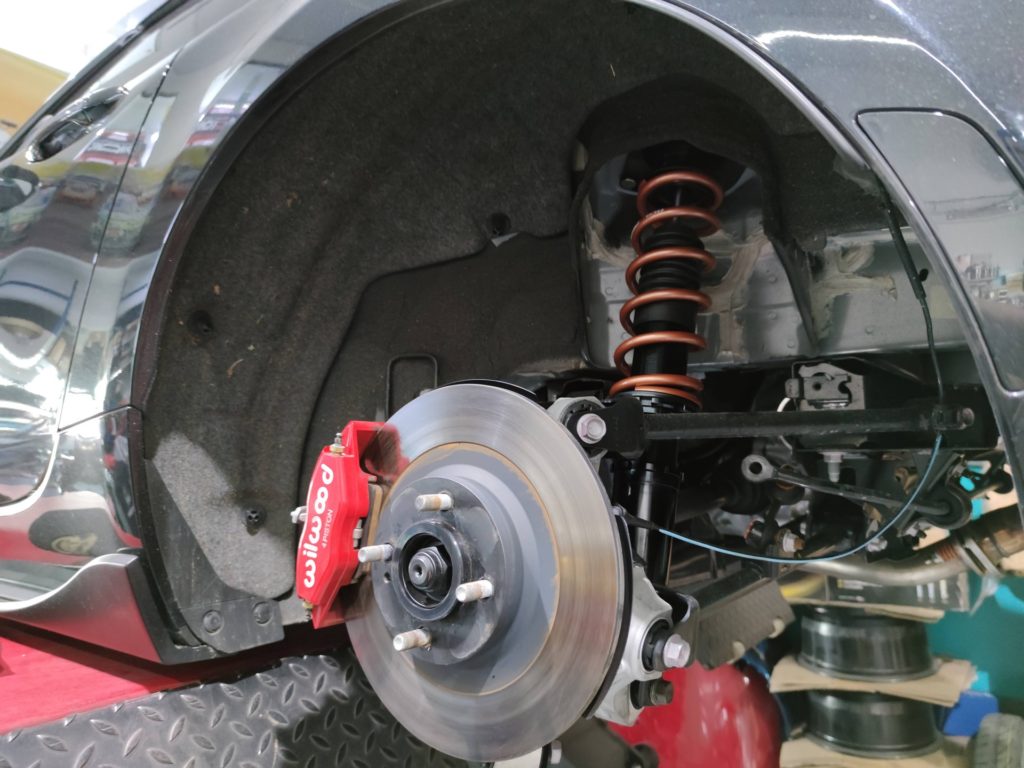
When your fleet vehicle does not steer correctly, it can make driving more difficult, and it can negatively affect other components of the vehicle, such as the tires and the axle. The most important components of proper steering and suspension are wheel alignment, shocks and struts and ball joints, and tie rods.
Wheel Alignments
Have your vehicle checked if you notice:
- Excessive or uneven tire wear.
- The vehicle pulls to the left or right.
- Feeling of looseness or wandering.
- Steering wheel vibration or shimmy.
- The steering wheel is not centered when the vehicle is moving straight ahead.
How often should I have my wheels aligned?
Follow the vehicle manufacturer’s recommendation noted in your owner’s manual. As a general rule, have your wheel alignment checked every 10,000 miles or at least once a year.
The importance of total alignment:
- Reduced tire wear: Improper alignment is a major cause of premature tire wear. Over the years, a properly aligned vehicle can add thousands of miles to tire life. Most tires are replaced prematurely due to adverse wear.
- Better gas mileage: Gas mileage increases as rolling resistance decreases. Total Alignment sets all wheels parallel, which, along with proper inflation, can minimize rolling resistance.
- Improved handling: Does your vehicle pull to one side? Do you constantly have to move the steering wheel to keep your truck traveling straight ahead? Many handling problems can be corrected by Total Alignment service. With all the vehicle components aligned properly, road shock is more efficiently absorbed for a smoother ride.
- Safer driving: A suspension system inspection is part of the alignment procedure. This allows worn parts to be detected before they cause costly problems.
Shocks & Struts
Shocks and struts help control your vehicle’s movements. If your vehicle’s shocks and struts are worn down, control is minimized, which can affect stopping times and “bounce” of the vehicle. If the impact and movement of the vehicle are affected, it can negatively impact the rest of the vehicle and cause premature wear to other components, especially the tires. Regularly replacing and maintaining your vehicle’s shocks and struts can improve the movement and life of your vehicle and its individual parts.
Air Suspension
Air suspension allows your vehicle to move safely and comfortably. The additional support offered by air suspension kits works in tandem with other suspension systems, providing stable and safe riding. If your air suspension system needs to be serviced, bring your vehicle to Advanced Diesel of Northwest AR, where our expert team can make sure you are back on the road quickly.
Ball Joints & Tie Rods
Ball joints operate similarly to the joints in our bodies: they allow the vehicle to move around, and they provide a hinge point for the steering system. Like the joints in our bodies, they sometimes wear down and need to be replaced. Replacing a ball joint will significantly improve your vehicle’s steering capabilities. Tie rods are less likely to be impacted by wear, but they should still be inspected regularly to ensure proper toe angles on your vehicle; an incorrect toe angle can significantly impact the wear on your vehicle’s tires, which can lead to premature and costly tire replacement.
Leaf Springs
Leaf springs are typically found on older vehicles. They hold axles in position; since only one linkage is necessary in vehicles using leaf springs, their suspension is simple and strong. Leaf springs can eventually wear out, however, and if your vehicle’s leaf springs need to be replaced, our team can replace them quickly.
Proper maintenance of your fleet vehicle’s steering and suspension components not only improve driving but can ensure that other parts of the vehicle are not negatively affected. If your fleet vehicle is not driving as smoothly as it should, set up an appointment with the experts at Advanced Diesel of Northwest AR. Our team will inspect the truck and fix any problems to make sure it is driving properly.



